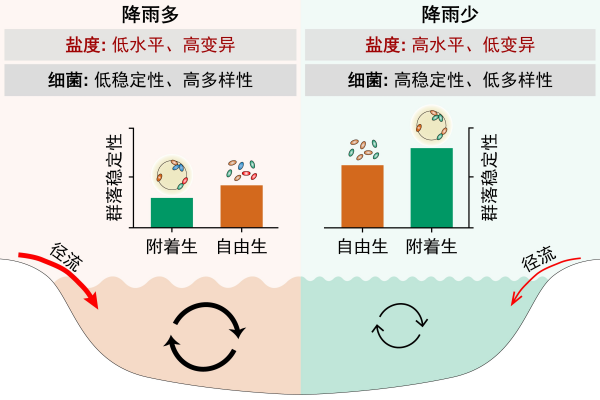
——Guidelines for the establishment of the China Academy of Advanced Science and Technology

——Guidelines for the establishment of the China Academy of Advanced Science and Technology



The results showed that with the increase of water salinity, the stability of the composition of free and attached bacterial communities showed an increasing trend, and their α Diversity is showing a decreasing trend. Comparative analysis shows that under high salinity and low variation scenarios, the stability of attached bacterial communities is higher than that of free living bacteria; Under low salinity and high variability scenarios, the stability of free living bacterial communities is higher than that of attached bacteria. Furthermore, studies have shown that bacterial traits (such as genome size and rare species interaction intensity) and rainfall driven environmental factors (such as salinity and particulate matter) may jointly lead to differences in the stability of free and attached bacterial communities under different salinity scenarios. This study preliminarily reveals the inherent relationship between rainfall, salinity, and the stability of planktonic bacteria, providing basic data and scientific basis for the ecological management, protection, and restoration of shallow water lakes and reservoirs in subtropical cities under climate change conditions.
The related research findings are titled Community stability of free living and particle attached bacteria in a subtropical reserve with salinity fluctuations over 3 years, and are published in Water Research. The research work was supported by the National Natural Science Foundation of China and the STS Program of Chinese Academy of Sciences in Fujian Province.
Paper link:论文链接

Stability of free and attached bacterial communities in urban reservoirs under the background of salinity fluctuations
Zhongke Frontier(Xiamen)Science and Technology Research Institute©All rights reserved
Service Customer Service:4006 285 158 Postal Code:361006
Address:Science City Zhongke Building,Huangpu District,Guangzhou City
396 Jiahe Road,Huli District,Xiamen City
Website:http://www.zk-yjy.com